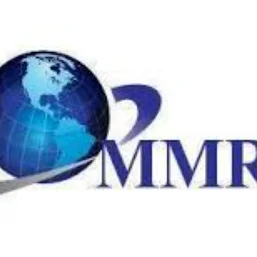The Europe artificial intelligence (AI) market was valued at USD 66.4 billion in 2024 and is projected to reach USD 370.34 billion by 2030, growing at a robust CAGR of 33.2% from 2025 to 2030. This rapid growth is driven by several key factors, including the increasing integration of AI technologies across industries such as healthcare, manufacturing, finance, and advertising. In the healthcare sector, AI is being used extensively for applications like disease diagnosis, drug discovery, predictive analytics, and personalized treatment plans, enhancing operational efficiency and clinical outcomes. Moreover, the convergence of AI with emerging technologies like blockchain and the Internet of Things (IoT) is fueling innovation by enabling secure, connected, and intelligent ecosystems. The proliferation of big data has further accelerated AI development, as algorithms depend on large datasets for improved training and performance, while advancements in computing power and scalable cloud infrastructure have made AI implementation more efficient and accessible.
Across industries, the demand for automation, predictive insights, and data-driven decision-making continues to expand, propelling the adoption of AI technologies in Europe. Governments, research institutions, and technology companies are forming strategic partnerships and investing heavily in AI R&D to strengthen innovation and maintain competitiveness in the global digital economy. In 2024, Europe accounted for 23.2% of the global AI market revenue, underscoring its strong position in the worldwide landscape. The European Union (EU) has taken a leading role in shaping AI governance through the introduction of the EU AI Act, which represents the world’s first comprehensive legal framework for artificial intelligence. This legislation focuses on ensuring the ethical, transparent, and safe deployment of AI systems, reinforcing Europe’s reputation for prioritizing human rights, accountability, and consumer protection in technological development.
The EU AI Act emphasizes responsible innovation and outlines clear obligations for developers and deployers of AI systems based on a risk-based approach. High-risk AI applications those impacting safety or fundamental rights are subject to strict compliance requirements, while uses deemed manipulative or exploitative are banned entirely. This regulatory clarity encourages innovation while preventing harmful or unethical uses of AI. By balancing technological advancement with public trust and security, the EU is setting a global benchmark for AI governance. As a result, AI adoption in Europe is expected to continue accelerating under a stable, ethical, and innovation-friendly framework.
Key Market Trends & Insights:
- Regional Insights: Germany dominated the regional market with a 32.3% revenue share in 2024, driven by strong industrial automation and manufacturing sectors. France is expected to experience the fastest CAGR of 35.5% from 2025 to 2030 due to government initiatives supporting AI startups and digital innovation.
- By Solution: The software segment led with a 35.0% share in 2024, owing to widespread adoption of AI platforms and analytics tools, while the services segment is projected to witness the fastest CAGR of 43.4% through 2030, supported by growing demand for AI consulting, integration, and maintenance.
- By Technology: The deep learning segment accounted for 26.0% of the revenue share in 2024, reflecting its applications in image recognition, speech analysis, and autonomous systems. The machine vision segment is anticipated to record the fastest growth, at a CAGR of 40.3%, driven by demand in automotive and manufacturing industries.
- By End Use: Advertising and media held the largest share at 17.4% in 2024, with AI transforming content personalization, ad targeting, and audience analytics. The healthcare sector is forecast to grow at the fastest CAGR of 40.2%, owing to the surge in AI-driven diagnostics and patient monitoring technologies.
- By Function: The operations segment led the market with a 20.7% share in 2024, reflecting AI’s pivotal role in automating workflows, supply chains, and decision-making. The sales and marketing segment is projected to grow at a CAGR of 39.4% as businesses increasingly adopt AI-powered customer engagement and predictive sales analytics.
Order a free sample PDF of the Europe Artificial Intelligence Market Intelligence Study, published by Grand View Research.
Key Companies & Market Share Insights:
The Europe AI market features a dynamic and competitive ecosystem supported by a strong technological base and favorable regulatory environment. Major global players like Microsoft Corporation and Google Inc. have established significant operations and partnerships within Europe. Microsoft Corporation provides a diverse range of AI solutions, including machine learning (ML) tools, cloud-based AI services, and automation platforms, particularly in industries such as healthcare, retail, and manufacturing. Google Inc. remains a dominant player, leveraging its expertise in search algorithms, advertising technologies, and cloud computing to expand AI applications across the region. Both companies are actively investing in AI infrastructure, developer ecosystems, and ethical AI initiatives aligned with EU guidelines.
Explore Horizon Databook – The world's most expansive market intelligence platform developed by Grand View Research.
Conclusion:
In conclusion, the Europe artificial intelligence market is undergoing rapid transformation, driven by technological advancements, supportive policies, and strong cross-industry adoption. The integration of AI with IoT, blockchain, and big data analytics continues to enhance operational efficiency and innovation across sectors. The introduction of the EU AI Act reinforces Europe’s leadership in promoting ethical, transparent, and responsible AI development, ensuring long-term trust in intelligent technologies. With countries like Germany and France emerging as key growth hubs, and major players like Microsoft and Google investing in European AI ecosystems, the region is set to become a global powerhouse for AI innovation and regulatory excellence.







